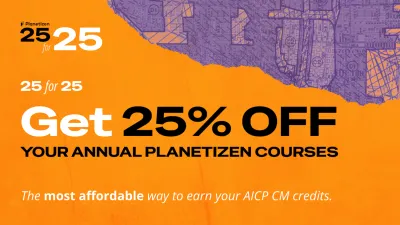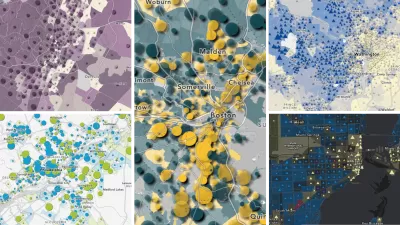How useful is planning scholarship to planners in practice? Thirty years ago, the author of a British study of information use by planners found, "The journal is not a source of major importance to the planner in practice, though this statement must be taken to reflect inadequate privision and inadequate timeing for reading" (White, 1974). Perspectives differ, but at least some of the problem has been the difficulty of finding relevant scholarship at the moment it is needed. I believe that these difficulties have greatly reduced in the past few years, and that we are on the verge of an unprecedently increase in the use of scholarship in practice fueled by online bibliographic searching and retrieval. From both the scholar's and the practitioner's perspectives, this change will have substantial effects.
How useful is planning scholarship to planners in practice? Thirty years ago, the author of a British study of information use by planners found, "The journal is not a source of major importance to the planner in practice, though this statement must be taken to reflect inadequate privision and inadequate timeing for reading" (White, 1974). Perspectives differ, but at least some of the problem has been the difficulty of finding relevant scholarship at the moment it is needed. I believe that these difficulties have greatly reduced in the past few years, and that we are on the verge of an unprecedently increase in the use of scholarship in practice fueled by online bibliographic searching and retrieval. From both the scholar's and the practitioner's perspectives, this change will have substantial effects.
Rebecca Mogg and I discuss these effects in an article in the current issue of the Journal of the American Planning Association. "A planners' guide to the digital bibliographic revolution," (Stiftel and Mogg, 2007) explains how to search thousands of journals in minutes using online search tools, and evaluates the coverage of planning journals in the principal search tools available. We argue that expectations for planners' awareness of research is increasing as citizens and stakeholder organizations have improved online access to research, and that the speed and simplicity of online searching mean that planners can find research quickly when they need it, something that was often impractical in earlier eras. But, our interviews with agency librarians led to the unmistakable conclusion that many in practice are not aware of the power of online searching, and that few agencies make journal access (beyond a few titles) easy for their staff.
The best access is expensive, using costly search engines like ISI's Web of Science, available for all practical purposes only at university libraries, but open-access search engines like Google Scholar, and online publishers web sites that market single article sales to non-subscribers, like Sage Journals Online, Elsevier's Science Direct, Taylor and Francis' Metapress, and Blackwell's Synergy, mean that all planners can affordably access journal published research quickly and easily. And, with 85 of 97 planning journals we examined available online (three of them free of all costs), it is now possible to print the lion's share of published peer-reviewed planning research without ever leaving your office.
Many planning agencies and firms have a lot to do to respond to the potential. Budgets need to accomodate online subscriptions to a wider list of journals and search services; procurement procedures have to allign with online article purchase options; staff need training. Our professional associations should faciliate discount purchase of subscriptions and search services by coordinating buyers' consortia of agencies and firms. It might well be feasible to create a planning-specific serach engine that would integrate access to published journal literature with government and contract planning reports and other documents, (like IDOX in the UK) to make rapid planning document search and retrieval cost effective throughout U.S. planning practice. From the scholar side, increased use of research will mean increased feedback, with the result that researchers will be better connected to practice. This is a fast changing area to which we must pay more attention.
References:
Stiftel, B and R Mogg. 2007. A planners' guide to the digital bibliographic revolution. Journal of the American Planning Association. 73(1): 68-85.
White, B. 1970. Planners and information: a report of an investigation into information provision in town and country planning. Research Publication No. 3. London: Library Association.

Planetizen Federal Action Tracker
A weekly monitor of how Trump’s orders and actions are impacting planners and planning in America.

San Francisco's School District Spent $105M To Build Affordable Housing for Teachers — And That's Just the Beginning
SFUSD joins a growing list of school districts using their land holdings to address housing affordability challenges faced by their own employees.

The Tiny, Adorable $7,000 Car Turning Japan Onto EVs
The single seat Mibot charges from a regular plug as quickly as an iPad, and is about half the price of an average EV.

Seattle's Plan for Adopting Driverless Cars
Equity, safety, accessibility and affordability are front of mind as the city prepares for robotaxis and other autonomous vehicles.

As Trump Phases Out FEMA, Is It Time to Flee the Floodplains?
With less federal funding available for disaster relief efforts, the need to relocate at-risk communities is more urgent than ever.

With Protected Lanes, 460% More People Commute by Bike
For those needing more ammo, more data proving what we already knew is here.
Urban Design for Planners 1: Software Tools
This six-course series explores essential urban design concepts using open source software and equips planners with the tools they need to participate fully in the urban design process.
Planning for Universal Design
Learn the tools for implementing Universal Design in planning regulations.
Smith Gee Studio
City of Charlotte
City of Camden Redevelopment Agency
City of Astoria
Transportation Research & Education Center (TREC) at Portland State University
US High Speed Rail Association
City of Camden Redevelopment Agency
Municipality of Princeton (NJ)






























